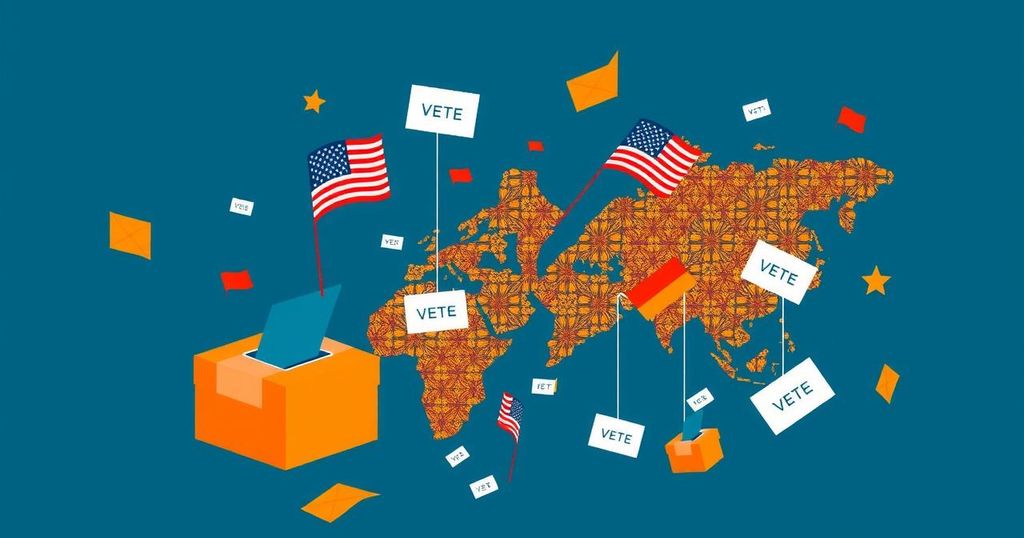Navigating the Emotional Landscape of Election Season: Maintaining Perspective and Focusing on Action

The article discusses the emotional strain individuals experience during election seasons and emphasizes the importance of maintaining perspective. It underscores the significance of elections while also highlighting that critical societal advancements often occur independently of political outcomes. By focusing on areas that individuals can influence, such as scientific and social initiatives, the article encourages proactive engagement instead of being overwhelmed by the electoral process.
During election season, many individuals experience significant distress due to the onslaught of negative news, shocking developments, and intense competition among candidates. In regions such as California, there exists a pervasive sense of powerlessness as critical decisions unfold on a national scale. It is tempting to become lost in the minutiae of polling data and electoral models, yet it is vital to maintain perspective on the broader implications of these elections rather than allow them to dictate our perception of progress in society. The outcomes of elections, notably who ascends to power, undoubtedly hold substantial weight. Divergent views on key issues, such as foreign policy, immigration, and social matters, clearly illustrate the opposing visions represented by figures like Kamala Harris and Donald Trump. Nonetheless, when stepping back to assess the larger picture, one notices that many significant factors influencing the well-being of individuals and communities are not dictated by electoral outcomes. Instead, these developments are often shaped by elements that lie beyond the political arena, representing opportunities for impactful change. History reveals that pivotal advancements, such as antibiotics, vaccines, and the internet, which have drastically improved contemporary life, emerged independently of the political fluctuations surrounding presidential elections. The driving forces behind societal development frequently reside in sectors often overlooked during political discourse. For instance, the decline in climate change impacts results significantly from the increasing affordability of solar energy, overshadowing the debates that dominate the electoral landscape. Moreover, the potential efficacy of initiatives often outweighs the political affiliations of the leaders implementing them. An example lies in the PEPFAR program initiated by former President George W. Bush, which provided critical support for combating HIV/AIDS in Africa and fundamentally saved countless lives, despite his administration’s many controversial actions. Elections are important; however, they are not singularly determinative. Within the cacophony of political battle, it can be challenging to discern which issues will have the most profound impact on future societal conditions. For instance, pandemic preparedness did not gain emphasis during the 2016 election cycle, yet it emerged as a core concern amid the COVID-19 crisis. Individuals feeling overwhelmed by the electoral process should redirect their focus. Rather than remaining entrapped in the unending cycle of news about election polls, individuals are encouraged to engage in initiatives that can yield substantial contributions toward improving the world. Many charitable organizations rely heavily on the efforts of dedicated individuals seeking to address pressing social issues. Scientific advancement and ethical dilemmas may benefit immensely from proactive engagement, influenced not by electoral outcomes but by committed individuals determined to implement meaningful change. As one considers the frequent urge to monitor election developments obsessively, it is advisable to ponder whether participating in productive efforts may prove more gratifying and significantly beneficial. Taking action on issues that align with one’s values and priorities can empower individuals and collectively foster a more positive trajectory for society.
The onset of election season often brings forth a wave of anxiety and negativity among the populace, influenced by the distressing news cycle dominated by political crises and controversies. Citizens may feel a sense of futility, particularly in more populous states with strong political identities, as national decisions appear beyond their control. This article explores how to navigate the emotional turmoil of election seasons while encouraging a focus on fruitful avenues to effect real change in society. It emphasizes the importance of understanding that while elections carry weight, they are not the only determinants of societal progress, and many significant issues can be addressed independently of political outcomes.
In conclusion, while recognizing the importance of elections, it is crucial to maintain perspective on their relative significance in broader societal progress. Historical examples illustrate that impactful changes often evolve outside electoral politics, driven by collective efforts in science, health, and individual activism. By redirecting focus from the obsessive monitoring of election outcomes toward proactive involvement in pressing societal issues, individuals can foster greater empowerment and contribute meaningfully to the world around them.
Original Source: www.vox.com








